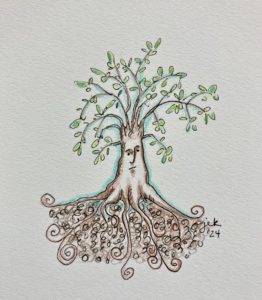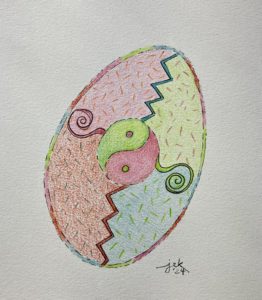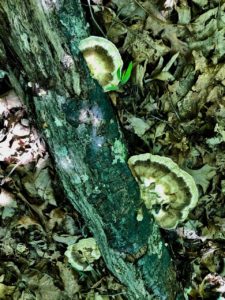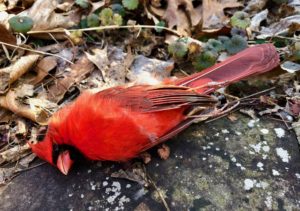
-Artwork © 2024 Jan Ketchel
At some level of our multidimensional being we decided to enter the life we are in to fully explore and master a specific issue. Carl Jung would ask people to discover the myth they were living, alluding to this deeper dimension of being that ushered us into the drama of our life.
Typically, we are so absorbed by the drama we are living that it can take the lion’s share of a lifetime to arrive at a detached enough perspective to begin to unravel the mysteries of our lives and to discover our true mission in coming here.
Often, we are so caught by the compensatory defenses that protect us from the vulnerability of our core issue that we mistake the troublesome defense for the root issue itself.
The psychic channel for Seth, Jane Roberts, was a prolific author who demanded of herself that she spend several hours every day at her writing table. Her eating habits were highly restrictive, definitely qualifying for an eating disorder diagnosis. The longterm impact of these compulsive habits eventuated in near total paralysis.
Those who knew and loved her prayed that she might free herself from these fatal defenses, that she might enjoy the physical freedom of a fulfilled life.
When Jane’s mother died in a nursing home in 1972, of advanced rheumatoid arthritis, Jane was 43 and hadn’t seen her mother in 15 years, largely due to the unresolved trauma she had suffered at her mother’s hands as a child and young adult, and which haunted her throughout her life. At this point, Jane was already well into having symptoms of the same debilitating disease.
Jane was riveted by her mother’s death and writes in her journal of her fear that her mother would continue to actively haunt her, not only emotionally but also somehow embody Jane with her paralysis while she finally went free.
Ironically, Jane, fully in possession of herself, clung to the rigid defenses that led to her own debilitating paralysis and her eventual death, at the age of 55, from the same disease. In effect, she was haunted by her mother for her entire life.
Clearly, for Jane, it appears that her core challenge was mastering her feelings for her mother, which she failed to complete during her lifetime, and which accompanied her on her journey into life beyond human form. And yet, as a pioneer in transpersonal psychology, her contributions are fundamental, as attested to by fellow pioneers, Deepak Chopra, Marianne Williamson and Louise Hay.
From a multidimensional perspective, the primal trauma of her childhood dissociated her from human connection, while at the same time it launched her so deeply into subtle reality that she energetically was able to make contact with a highly evolved teaching being who mapped the deeper dimensions of the psyche and shared the tools for human evolution, which are still so crucial at this stage of our collective development.
In the role of a wounded healer, Jane channelled the material to enable spiritual seekers to discover and interact with their soul while they navigate the meaning of their lives. Though she could not fully use the insights to help herself heal, I suspect that Jane chose this extreme imbalance to be energetically available to deliver this invaluable gift.
Carlos Castaneda, another wounded healer, delivered to the modern world the shamanic tool of recapitulation to fully master the kinds of trauma at Jane’s core. With recapitulation, we fully reclaim our energetic selves to explore transpersonal reality with balance and confidence.
Trauma appears to be a precondition to human life, as clearly delineated by Stan Grof’s documentation of universal birth trauma. Nonetheless, the root of trauma can be fully neutralized and the thrust for spiritual exploration be one of innocence and wonder, instead of being one of compensatory defense.
Many a masterpiece is the product of an extreme compensatory defense. But continued spiritual evolution requires that we ultimately master the deepest root of why we are here. And from there, our possibilities are unlimited, in this life and beyond.
Evolving,
Chuck



